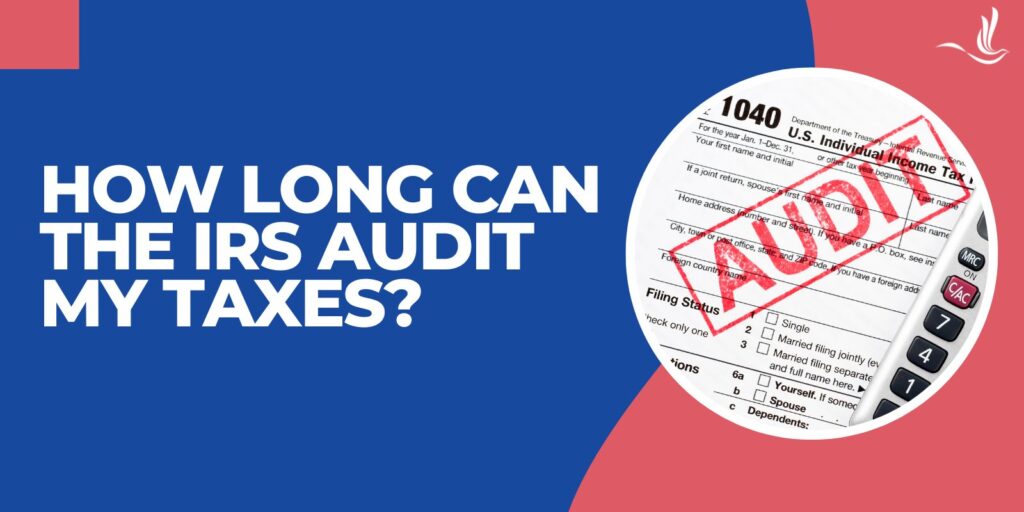
The worst thing that can happen for most taxpayers is being told by the IRS that they are being audited. However, what most people don’t realize is that there is a timeframe for how long the IRS can audit an individual. This timeframe is known as the audit statute of limitations. Taxpayers have a right to dispute an IRS audit if they have proper substantiation. In this article, we’ll explain how long the IRS has to audit taxes and what factors may affect this timeline.
Audit Statute of Limitations: The Three-Year Rule
Section 6501(a) of the Internal Revenue Code sets out the rule for the IRS audit statute of limitations. The IRS generally has three years from the date a tax return is filed to assess any additional taxes owed. It starts ticking on the date the return is filed.
Exceptions to the Three-Year Rule
The three-year rule serves as a broad guideline. However, there are exceptions and circumstances that can extend or suspend the audit statute of limitations. Some key exceptions include:
- Substantial Omission of Income: If a taxpayer omits more than 25% of their gross income on their tax return, the IRS has six years from the filing date to assess additional taxes.
- No Return Filed: If a taxpayer fails to file a tax return, the statute of limitations doesn’t apply, and the IRS can initiate an audit at any time.
- Agreements and Extensions: If a taxpayer agrees to extend the statute of limitations or signs an agreement with the IRS, the audit period may be extended.
- Omission of Foreign Income: If a taxpayer omits more than $5,000 of their foreign income on their tax return, the IRS has six years from the filing date to assess additional taxes.
- Omission of Gifts or Inheritances: If a taxpayer receives a gift or inheritance of over $100,000 from a non-U.S. person and does not file Form 3520, the IRS can initiate an audit at any time.
- Fraudulent Returns: In cases of fraud or the willful intent to evade taxes, there is no statute of limitations. The IRS can initiate an audit at any time.
Audit Process
Flagged tax returns typically end up going into an IRS audit. At this point, these taxpayers may receive an IRS notice called a CP2000. The IRS agent will be required to open and close an audit within 26 months after a tax return has been filed. The IRS strictly adheres to its guidelines to ensure that the audit is complete within the three-year timeframe.
For audits that start a few months after a return is filed, the IRS will typically freeze any refunds. However, the IRS will have to pay interest on refunds that are sent late. This is why the IRS will attempt to resolve its audit quickly. Once a taxpayer answers the questions regarding their tax return with accuracy, their refund will be released and sent out. Audits that happen immediately after filing a tax return typically contain tax credits. Usually, these will include earned income tax credits, and the child tax credit. The IRS usually wants to verify the filing status, dependents, and other return items before sending your refund.
Practical Considerations
While the IRS has a specified period to initiate an audit, taxpayers should keep their tax records for at least three years after filing. However, keeping records for an extended period, such as seven years, can provide an added layer of protection. This is especially true if there are concerns about substantial omissions or potential audits related to certain transactions.
Seek Help if You’re Being Audited
Understanding the IRS audit statute of limitations is crucial for taxpayers to navigate the complexities of tax compliance confidently. While the general rule is a three-year window for the IRS to initiate an audit, exceptions can affect this timeframe. As tax laws and regulations are subject to change, it is advisable to consult with a tax professional to stay informed about any updates that may impact the audit process. By maintaining accurate records, individuals and businesses can mitigate the risks associated with IRS audits. Optima Tax Relief provides assistance to individuals struggling with unmanageable IRS tax burdens.
If You Need Tax Help, Contact Us Today for a Free Consultation